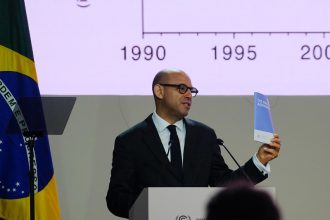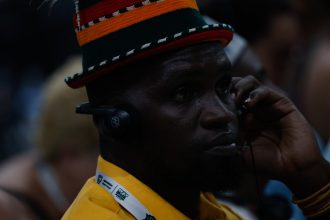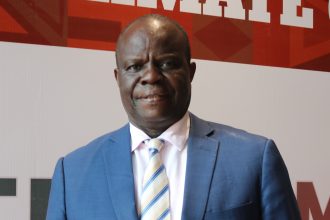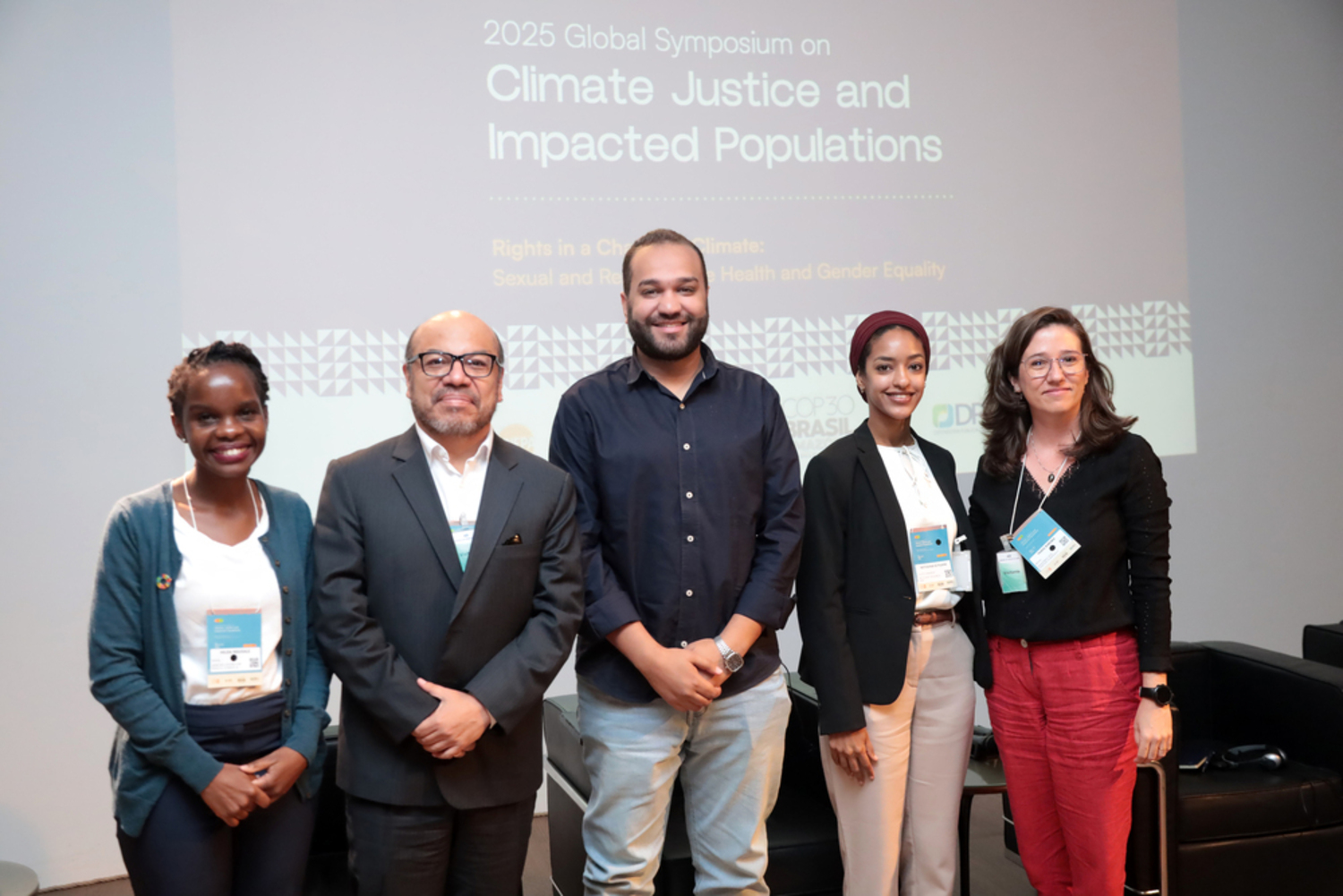Brasilia, Brazil — The 2025 Global Symposium on Climate Justice and Impacted Populations convened in Brazil’s capital from July 28 to 31. The Pre-COP 30 symposium was held to discuss resilience amid escalating climate crises, from record-breaking droughts to devastating floods, ahead of COP30 in Belém.
The seminar was co-hosted by the United Nations Population Fund (UNFPA) and the Government of Brazil, was themed “Rights in a Changing Climate: Advancing Health, Sexual and Reproductive Rights, and Gender Equality.”
The symposium welcomed a diverse array of participants, including government delegates, civil society representatives, economists, and experts in climate and gender issues, representing nations such as the Bahamas, Bangladesh, Brazil, Colombia, Ethiopia, India, Italy, Kenya, Malawi, Nigeria, Panama, Philippines, Sierra Leone, South Africa, South Sudan, Sri Lanka, the United States, Zimbabwe, and others. Additionally, virtual attendees joined via Zoom, engaging in the sessions with the same enthusiasm and commitment as those present in Brasília.
In a session moderated by Imali Ngusale, the Strategic lead for the African Center for Health, Climate & Gender Justice Alliance (ACHCGA), Hugo Rolando Nopo Aguilar, Senior Economist, a World Bank expert, said, “Brazil is one of the countries prone to natural disasters.”
Aguilar admitted that the timing for discussing climate change resilience could not be more urgent.
In his presentation, he underscored that the poor in Brazil are disproportionately affected by natural disasters. He also highlighted that in Latin America and the Caribbean (LAC), Brazil is expected to have the highest increases in poverty due to disasters.
Similarly, Mohamed Ageez, Youth Participation Officer at UNFPA ASRO, underscored that climate change represents the foremost environmental challenge of our time.
Ageez admitted that climate change disproportionately impacts those least responsible for it, citing that women and girls, particularly in low-income nations, face heightened risks from extreme weather events.”
Accordingly, Augustus Lito M. Narag, EnP, Officer In Charge, Director for Mindanao Affairs and Concurrent Director for Data Management and Systems, Pantawid Pamilyang Pilipino Program (4Ps) on Conditional Cash Transfer in the Philippines, made a presentation that revealed that gender-based violence is exacerbated by climate change. Narag, also said that climate change disrupts access to sexual and reproductive health services and deepens economic inequities.
Markedly, participants from Brasília, policymakers, climate scientists, health experts, youth leaders, and civil society activists who attended the session admitted that climate action needs to prioritize human rights and resilience.
While addressing the panel discussion, Thais Lemos Ribeiro, Coordinator of Education in Human Rights and the Environment at the Ministry of Human Rights and Citizenship, said that “Climate change is not just an environmental crisis, it’s a human rights crisis.” Ribeiro stressed that while much of the discourse centers on addressing climate change itself, prioritizing the dignity, health, and choices of millions, particularly women and youth, is equally critical.”
Notably, Bothaina Eltigani, a PhD candidate at the University of Oxford, presented evidence on the link between food security and the reduction of gender-based violence against adolescent girls affected by drought in Southern Africa. She emphasized that rights-based social protection offers a vital opportunity to implement transformative climate financing, addressing not only environmental challenges but also the intertwined socioeconomic and political factors that exacerbate vulnerability.
Eltigani maintained that effective climate solutions must move beyond summit discussions to prioritize actionable, grassroots implementation
The symposium was a strategic milestone on the road to COP30, which also comes three decades after the landmark International Conference on Population and Development (ICPD) and the UN Framework Convention on Climate Change. The symposium built on the 2030 Agenda for Sustainable Development, emphasizing that climate justice must uphold sexual and reproductive health, combat gender-based violence, and dismantle harmful practices.
As the echoes of the Brasília symposium fade, the path to COP30 in Belém promises to amplify these critical dialogues on climate justice, human rights, and equitable resilience. Yet, even as momentum builds, attendance at the summit remains mired in heated debates over escalating expenses, with many delegations from developing nations voicing concerns that accommodation costs in Belém are soaring far higher than usual, potentially excluding vital voices from the global stage.




